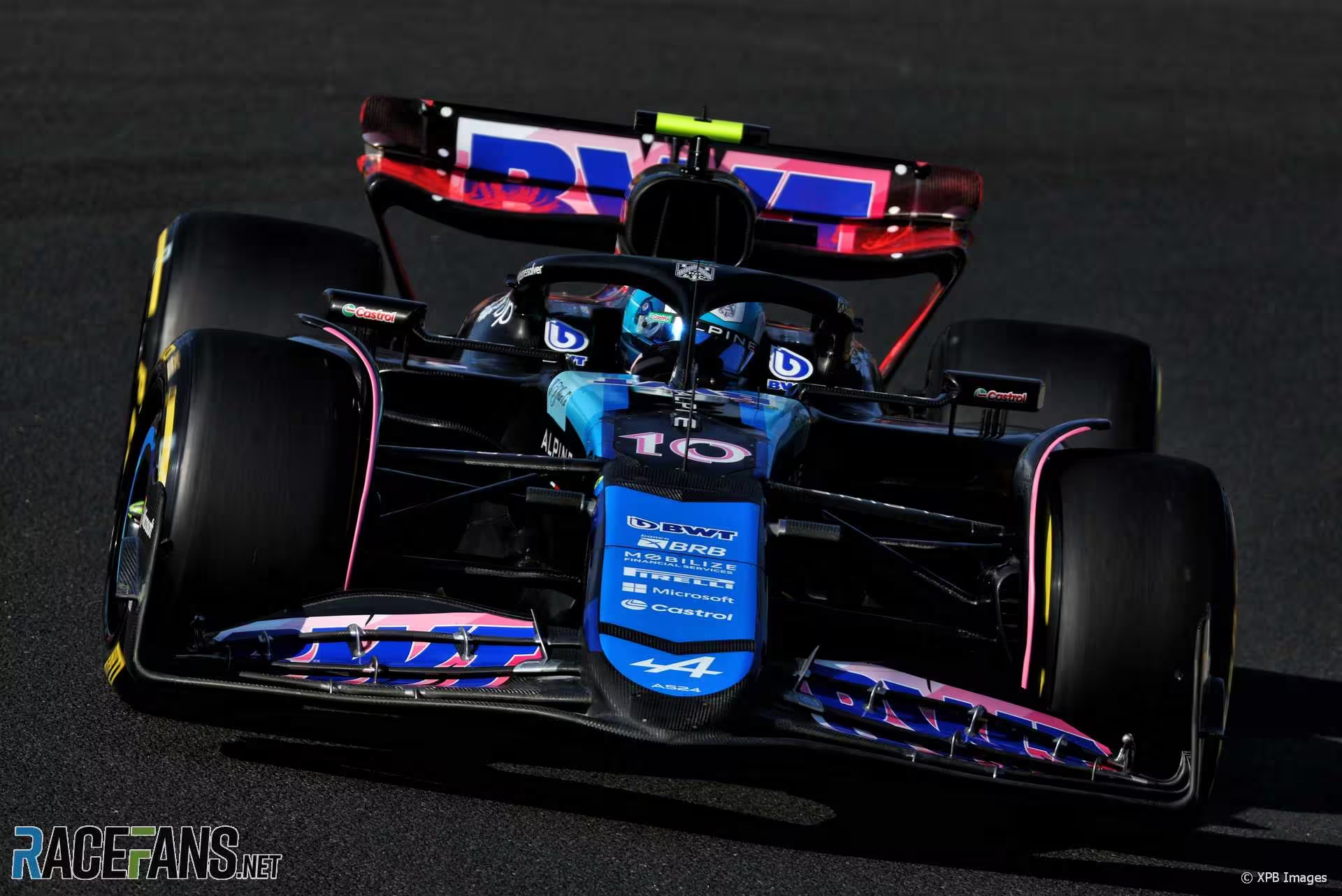Outgoing Alpine team principal Bruno Famin has shed light on why Renault is planning to stop producing its own Formula 1 power units.
Famin, who will be replaced by Oliver Oakes in charge of the team next month, pointed out engine manufacturers do not receive a share of F1’s prize fund, unlike chassis builders. However the price at which they sell their power units is fixed.
“It’s a fact that the business model, to call it like that, is a bit weird,” Famin told the official F1 channel.
“We know with the Concorde Agreement, the system of the prize fund, which is benefiting the teams only, and in the other hand the FIA has financial regulations and the sporting regulations which makes it mandatory for the PU manufacturer to sell, at a capped price, power units to teams who would like to have it.”
F1 will introduce a cost cap for power units in 2026, which is set at $130 million (£101m / €120m). Despite this, Famin says becoming a power unit customer is more attractive financially.
“When you see the [research and development] costs in developing a PU compared to buying a PU, there is a huge difference,” said Famin. “That huge difference is not compensated by any prize fund because all the prize fund goes to the team. Then we are not talking about performance, we are talking about a huge difference in money.”
“There is no secret in the difference because we know, it’s official and it’s public,” he added. “The cost cap, the amount of money which is allowed to PU manufacturers and the PU supply price and the price that the PU manufacturer has to sell the PU, it’s also public. It’s something like €120 million in one hand, 17 in the other hand. Then you make the calculation. [Per] year, of course.”
Advert | Become a RaceFans supporter and
F1 teams agreed to freeze development of the current power units at the end of 2021. Famin says this has left Alpine at a disadvantage compared to its rivals.
“Right now the current engine is a bit down, by 15 kilowatt [20 bhp], I think is what the FIA figures are saying,” he explained. He acknowledges Renault were out-developed by their rivals when the V6 hybrid turbo regulations were introduced, but said they have largely caught up since. “Renault totally missed but now we are 10 to 15 kilowatts down,” he said. “The power unit is in average two-tenths of lap time.”
“In average,” he added, “because it depends on the track, of course.” However he…
Click Here to Read the Full Original Article at RaceFans…

